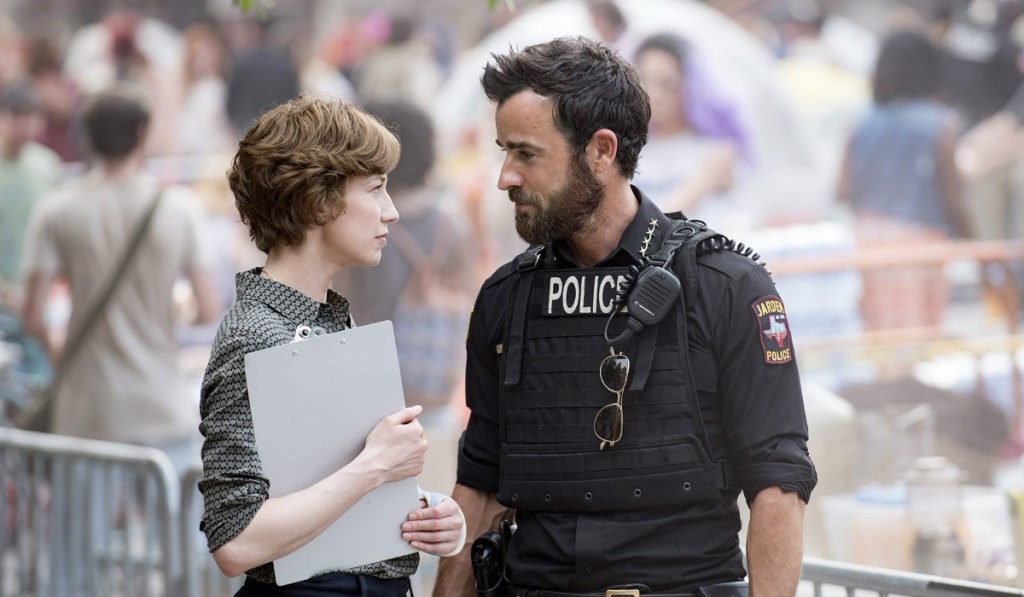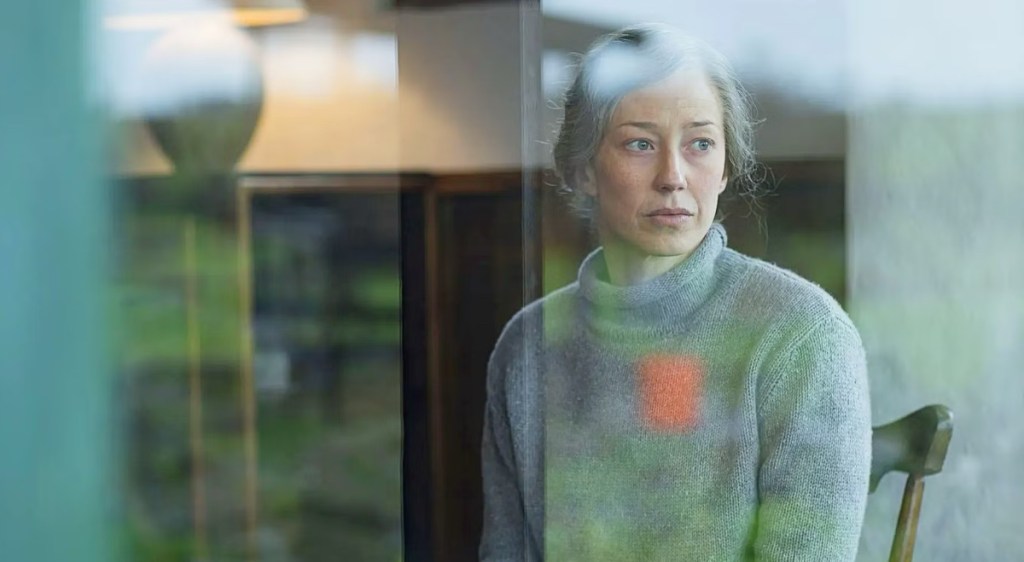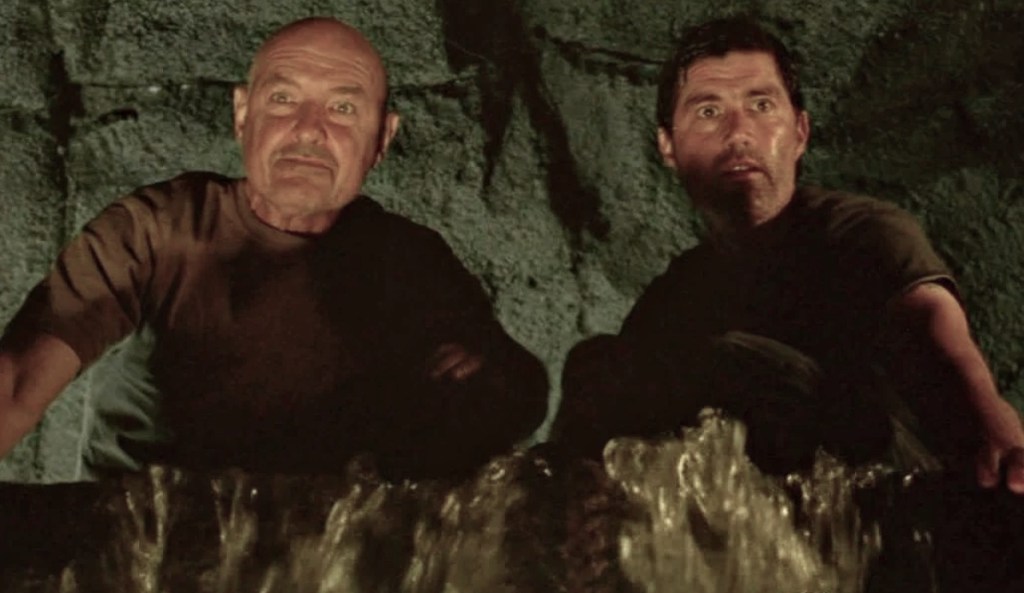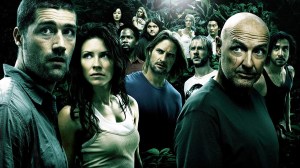Damon Lindelof’s experience with the finale of Lost appears to have had a profound impact on his career. While he’s found plenty of success since, like his Watchmen series, he’s also still facing numerous criticisms over the divisive ending of the ABC mystery drama. He’s also taken a few hits over his writing involvement in various filmmaking projects, including Ridley Scott’s Prometheus. But he first struck critical gold post-Lost with his adaptation of Tom Perrotta’s 2011 novel The Leftovers, delivering a surreal version of Lost that literally “let the mystery be,” as the theme music says. Instead, the series focused on the connections between the characters and the traumas they’re dealing with in a world where two percent of the population disappears.
Videos by ComicBook.com
Both Lost and The Leftovers seem to represent two sides of the same coin, which some fans on Reddit point to as an indication that the shows are connected in more ways than just shared themes. The theory is an unofficial connection, of course. Both shows are long out of production, but it’s fun to kick around possibilities and play around in both worlds again. It’s also an interesting look at how Lost could be a version of The Leftovers built from all the tidbits and exposition behind the in-story disappearances. As Reddit puts it, The Leftovers is how the events of Lost affected the rest of the world.
At the very least, this is a good jump-on point to rewatch the shows with new thoughts in mind on what might’ve been or where connections could’ve formed between the respective series. As the original post posits, the incident on the island with the hatch and the original Oceanic 815 crash are also to blame for the disappearance of people in The Leftovers. I wanted to take a closer look at this idea and see if there is room for expansion.
A Real Connection

Before launching into fan fiction territory, it is important to nail down the firm, intended connections between Lost and The Leftovers. There is difficulty in seeing the parallels clearly while originally watching The Leftovers, but that’s more a personal issue. With the benefit of both series being finished and in the rear-view mirror, along with the benefit of age, the threads begin to show themselves.
Kevin Garvey and Jack Shephard are on similar journeys throughout each respective show, eventually coming to grips with the world they’ve been plunged into, and also guiding the audience through it. Both characters also help to balance and explore the show’s flirtation with the supernatural and faith. The debate of science and faith was a major part of Lost from the beginning, while The Leftovers showed how the debate has evolved. The two series also share a lot from their final seasons, despite the fury that followed the Lost finale. The Leftovers has those same mysteries without answers, too, but it seems audiences finally saw the point. The experience Lost was trying to present is about the characters and the journey, not the explanations for the world. We barely know all the answers in reality, so it’s not a stretch.
There are likely more firm connections between the shows, but they officially stop short of both being connected within the same universe. That’s where the internet resides and chimes in with its thoughts.
Universal Possibilities

The prevailing idea in this fan theory is that Lost and The Leftovers take place in the same universe, connecting the incident that caused the crash of Oceanic 815 to the mass “departure” of the two percent away from the island and elsewhere in the world. The island from Lost still maintains its mystery, but that doesn’t mean the series doesn’t offer up any answers. The show makes it very clear that the island is a nexus for good and evil in the world, with a literal cork holding the darkness from enveloping the island and destroying everything. The supernatural is real, represented here by island protector Jacob and the Man in Black. One aims to save the island, while the other wants to leave the island through its destruction.
So the “Sudden Departure” in The Leftovers would be the result of the island’s near meltdown after Desmond confronts his partner, Kelvin Inman. Luckily, Desmond re-enters the hatch, enters the famous numbers, and narrowly avoids an extinction event. But the consequences of his delay are Oceanic 815 crashing into the island as it happened, and with this theory, the rest of the world is essentially split between realms. Kevin and Nora are on their side of existence, while she finds out that those disappeared on the other side believe they were the real “leftovers.”
This thought also hinges on Nora Durst’s monologue from The Leftovers finale being truthful, at least in terms of the theory. The show still lands its ending without anything new. It’s all about not making the same mistakes as Lost.
Alternate Realities

Given the way audiences have accepted the multiverse and branching timelines in the Marvel Cinematic Universe, the same should be offered to Lost. Time travel is at play in Lost, so modern audiences might be more in tune with the timeline. While The Leftovers avoids the time shenanigans, the ideas at play are the same across both series. You can’t change the past, no matter what happens next, and coming to terms with the largest hurdles every person faces in life.
And Lost‘s solution for this was with Purgatory. The flash-sideways world turns out to be a special place where all of the characters created a way for them to meet again. And due to their shared connection to the island, they can move on together into the light that fuels the center of the island.
For The Leftovers, we got plenty of twists and turns within Kevin’s dream/near-death experiences in the hotel and as an assassin, but the real alternate world is the one created by the departure. The fan theory falls apart a bit at this point, but knowing that we’re working with a fan theory connecting the shows, we have to think reality was unintentionally split due to the events that led to the plane crash. Also, Purgatory is a separate place according to those protecting it.
Of course, if Nora is lying at the end of the series about her journey, then two percent of people did just up and disappear, and the dreams of a future shared-universe story are down the tubes.
Spiritual Successor or Second Chance?

For fans of Lost who are still looking for closure, they should watch The Leftovers. While the theory falls apart at this point, the DNA shared between both shows is obvious. It’s also worth it to Lindelof, who has been put through the ringer and still came out to create something great. And as he told Time, the whole period truly helped him grow.
“Emotionally, where my headspace was when I was making the first season of The Leftovers, I was very much in that space of Lost had ended, and the way that it had ended, and sort of processing all that and still being interested in the same themes and dynamics as always but wanting to figure out a new way to tell that story,” Lindelof said. “I think I was in a dark place when I was writing the first season of the show, and the show really reflected that, and as I started to come out of the darkness, so did the show. I still think even the second season deals with some very intense stuff, but I think there’s more of a spectrum of the rainbow, so it’s not just all the dark colors.”
The series also had a different rise than Lost, which was uber popular out of the gate and almost forced them to craft a road to the finale. For The Leftovers, Lindelof notes that “there were many people around me—the writers, the directors, the actors—and I started listening more and enforcing my own will less.” The result for him was a project that was created on strong bedrock and satisfied the itch for a lot of viewers.
So while Lost and The Leftovers aren’t officially connected, the theory’s idea and the concrete thematic connections offer satisfaction to people left upset at the Lost finale. There is also no sign of Paulo and Nikki anywhere in the series, so it can’t all be bad.
Do you feel like the satisfaction is enough to enjoy both series and achieve closure? Do you have a theory of your own you want to share? Let us know in the comments.









